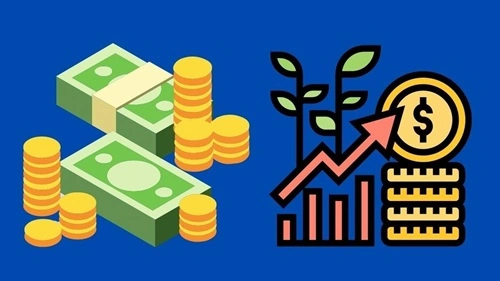In a capitalist economy, private individuals or businesses own and operate the means of production and distribution. So what exactly is their primary objective? To gain wealth, that’s what! Here, rather than the government setting prices and wages, market forces like demand and supply do it.
Here, the importance of private property rights becomes apparent. How though? Well, people are able to freely own and sell assets thanks to these. This liberty isn’t just a service, it encourages investment, which in turn boosts the economy. Businesses are always inventing and optimizing their processes to remain ahead of the competition, driven by the need to make a profit. For us, the buyers, this means reduced prices and better products. In such an economy, the government ensures the rule of law and protects these property rights by acting as a referee, but otherwise, it remains out of the market and lets competition run its course. Let’s know some benefits and drawbacks of Capitalism:

Advantages of Capitalism
1. Peak Economic Efficiency
You see, in the capitalist scene, competition is very important. Companies are always looking for ways to beat their competitors by cutting costs and making the best use of their resources. Companies are constantly alert, streamlining resources and minimizing expenses to outperform their competitors. This is about giving exactly what you, the customer, want and at rates that won’t break the bank.
2. The Innovation and Entrepreneurship Spirit
As a fun fact, capitalism is a great place for people to be creative and start their own businesses. For what reason though? Money to be made is a great incentive since it drives us greatly. With new concepts, products, and technology, people and businesses are ready to strike it rich.
3. Lots of Options
An awesome thing about capitalism? You see, companies are trying hard to beat each other by giving you better deals, higher quality, and new products that make your life easier. You can choose from the best products because there is so much competition. You can find items that fit your tastes and budget exactly.
4. Wealth Creation and Living It Up
Think of capitalism as an option that you can go with when you want to make a lot of money and see your biggest dreams come true. Businesses that are successful not only make more money but also create jobs, raise wages, and make it easier for you to invest and increase your wealth. In what way does it top things off? Better schools, nicer homes, better health care, and all the other nice things that money can buy that make life more enjoyable.
5. Flexibility and Adaptability
For sure, capitalist markets change quickly, whether it’s due to an unexpected technological advancement or a change in what people want to buy. This is very important, especially when trying to avoid economic shocks like recessions or sudden changes in the market.
6. Hard Work Pays Off
People driven by the fantasy of hitting it rich push harder, create ideas and pursue their objectives. That’s like the strongest motivation to come up with new ideas and be more successful in life.
Disadvantages of Capitalism
1. Growing Income Inequality
Some people say that one of the worst things about capitalism is that it makes the gap between rich and poor even bigger. The wealth gap is getting much bigger because people who start with more resources or capital have a big advantage. This gap isn’t just about money though, it also creates social division, which is not a good thing at all, especially when it comes to different income classes of people in a nation.
2. Worker Exploitation
Here, the bad side of making money is precisely what we’re going to talk about. In a capitalist system, companies may cut corners on wages, working conditions, and job stability in order to make as much money as possible. It can be very unfair to workers when companies try to cut costs by pushing them to work too much and not enough, you know?
3. Economic Rollercoaster Rides
You must keep a close eye on how the economy is doing if you really want to be a part of capitalist society. Businesses and customers frequently go overboard during boom times, which causes enormous economic bubbles to burst. The end result? Bad recessions cause unemployment to rise, spending cuts, and financial problems that affect whole towns.
4. Short-Sightedness
Want to make money quickly? This is a trait of capitalism, which often pushes a here-and-now mindset. Because of this, businesses might forget about long-term sustainability and moral issues. As a result? They hurt the environment, make bad products, and don’t do their social tasks.
5. Trashing the Planet
Because they want to make money, businesses under capitalism might not care about going green if they think it will cost them money. This causes a lot of bad things to happen to the earth, like pollution and cutting down trees and whatnot. Companies can abuse natural resources without caring about the future if there aren’t tight regulations, which hurts ecosystems and public health GREATLY.
6. Basic Needs? Not So Basic
In the tough capitalist market, if you can’t pay, you might not be able to get things like medical care, schooling, or a place to live. People who are weakest in this system often can’t get what they need, which keeps poverty and injustice going strong. And sadly, that’s the case in the world right now, where a lot of people are suffering from this very inequality.
7. Monopoly Power Plays
Have you ever thought about how some markets seem to be run by a few big players? That’s yet another bad thing about capitalism. When companies merge and take over rivals, they get stronger and can raise costs and lower standards, pushing out new companies, yes, out of the market. This stops new ideas from coming up and limits the options available. Sometimes, these big companies set the rules without caring about what customers want.
Comparison Between Advantages and Disadvantages of Capitalism
| Advantages | Disadvantages |
| High Economic Efficiency | Growing Income Inequality |
| Encourages Innovation and Entrepreneurship | Worker Exploitation |
| Wide Range of Choices for Consumers | Economic Instability |
| Wealth Generation and Improved Living | Focus on Short-Term Gains |
| Market Flexibility and Adaptability | Environmental Degradation |
| Rewards Hard Work and Initiative | Access to Basic Needs Dependent on Income |
| Monopoly Formation |



